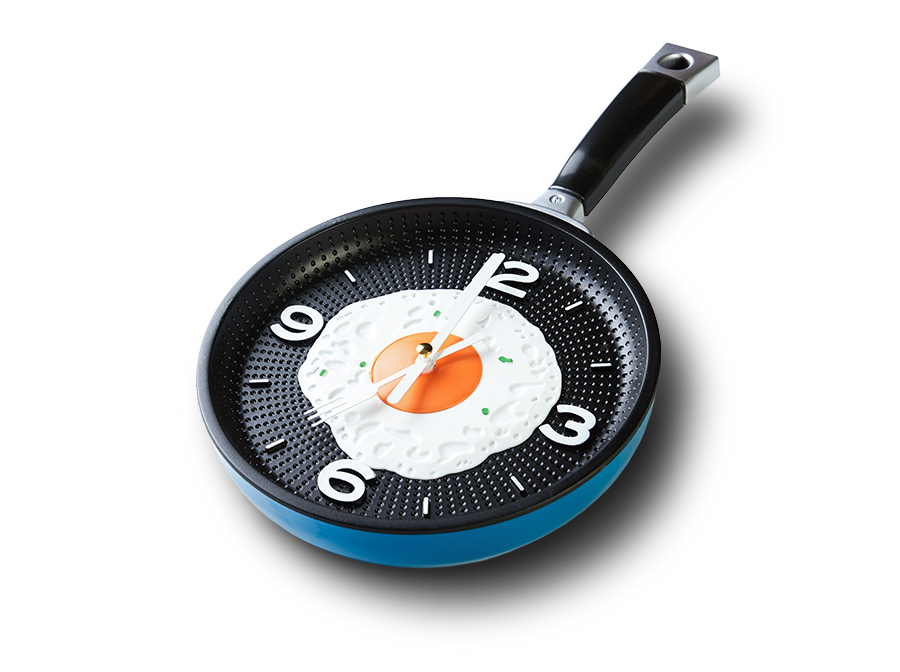Making meals count
Timing is everything when it comes to weight loss.
Story: Dr. Robin Miller and David Es. Kahn
There is an age-old argument about whether eating breakfast is important. We have so many patients who tell us how hard it is for them to think about eating anything in the morning. Unfortunately, the majority of these people are overweight; they crave sugar and are totally pooped out by the end of the day. The connection between their lack of sustenance in the morning, their carbohydrate cravings, their low energy level throughout the day, and overall weight problem has not dawned on them.
There’s a proverb that advises, “Eat breakfast like a king, lunch like a prince, and dinner like a pauper.” In other words, eat a big breakfast, a middle-sized lunch, and a light dinner.
It turns out this proverb is right on the money. Multiple studies have shown why our non-breakfast patients and anyone else who wants to get thinner might want to reconsider their eating patterns. The most impressive study was one done in Israel. Researchers took 93 obese women and divided them into two groups. They were given the same number of calories and, in fact, the same food daily for 12 weeks. Their meals totaled 1,400 calories a day. The only difference was when they ate them.
The breakfast group ate 700 calories in the morning, 500 calories at lunchtime, and 200 calories at dinnertime. The dinner group ate 200 calories for breakfast, 500 calories for lunch, and 700 calories for dinner. Both groups ate exactly the same foods, just at different times.
Those who ate the high-calorie breakfast lost an average of 17.8 pounds each and 3 inches off their waistline, while those in the high-calorie dinner group lost only 7.3 pounds and 1.4 inches off their waistline. That’s more than twice as much weight lost. In addition, the breakfast group members significantly lowered their triglyceride levels and sugar spikes throughout the day as compared to the dinner group. This improves energy levels as well as reduces the risk for cardiovascular disease. They also had less of a desire to snack during the day and felt satiated.
Interestingly, the meals did contain forbidden foods such as cakes and cookies. But this did not seem to affect the large weight loss in the big breakfast group. Another study found that having some forbidden foods early in the day is probably a good thing.
In a study of 193 obese adults, participants were assigned to two groups. Men were given 1,600 calories a day, and women 1,400. One group was given a low-carbohydrate diet including a 300-calorie breakfast, and the other (lucky) group was given a 600-calorie breakfast high in protein and carbohydrates and which always included a tasty dessert. Halfway through the study, both groups had lost 33 pounds per person on average. However, in the second half, the low-carbohydrate group started gaining their weight back because of the difficulty of resisting temptation. They regained 22 pounds a person on average by the end of the study, which lasted 32 weeks. The 600-calorie, yummy breakfast people lost 40 pounds a person on average.
Both of these studies show the significance of eating a nice-sized breakfast and tapering off your calorie intake as it gets later in the day. They also illustrate why it is important to find ways to eat so you are making healthy choices most of the time and that you don’t feel deprived. For those patients who we have been able to convince to eat either dinner for breakfast or to make breakfast their biggest meal of the day, the results have been nothing short of a miracle. They have energy, feel great all day, and have been able to lose weight and maintain it.
If you are struggling, think about changing the timing of your calorie intake. If you commit to this approach, you will be delighted with the results.
About the writers
Dr. Robin Miller and David Es. Kahn are authors of the book, “Healed: Health & Wellness for the 21st Century.”

